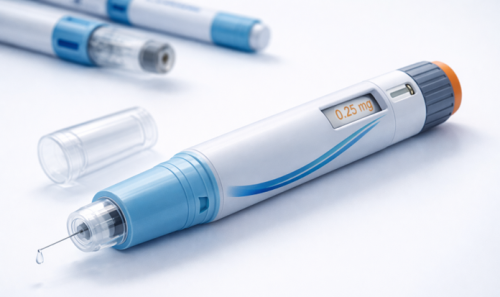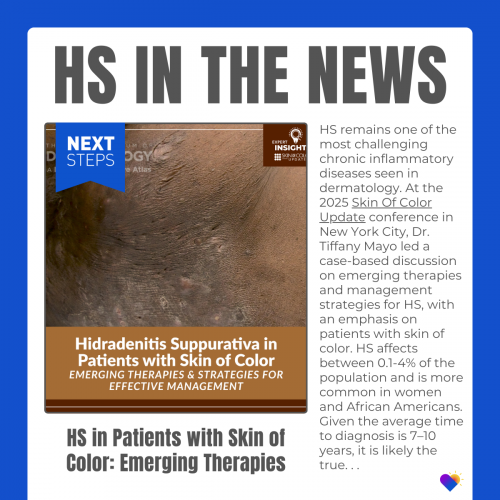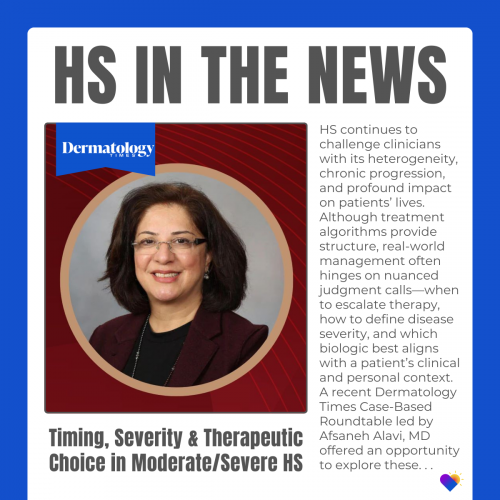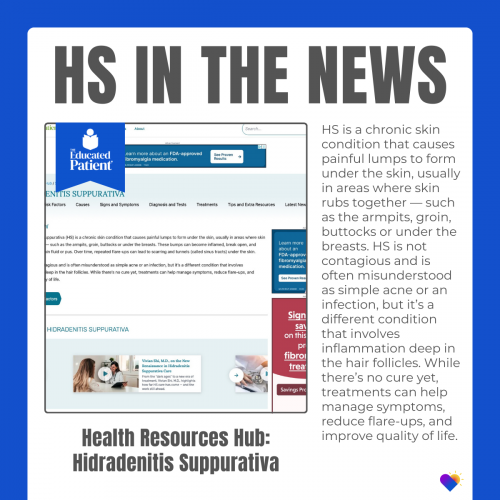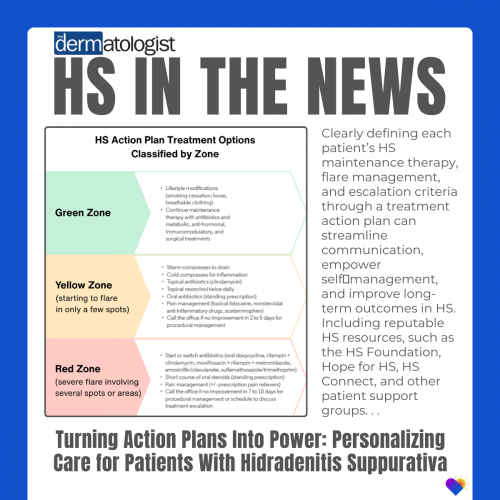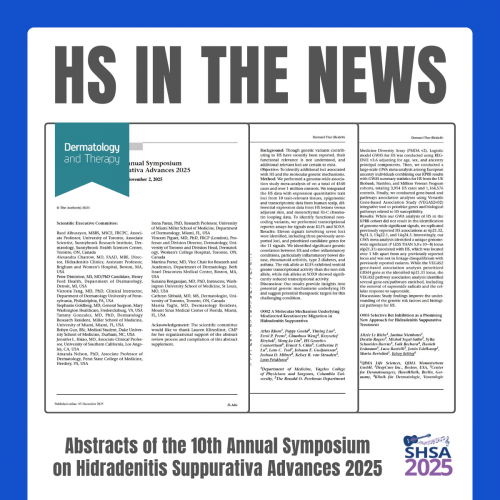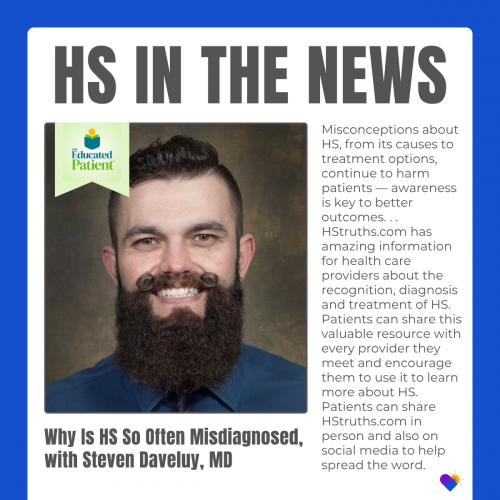Latest News
Do GLP-1 medications help signs and symptoms of Hidradenitis Suppurativa?
Could a medication commonly used for type 2 diabetes and weight loss also help improve hidradenitis suppurativa? New research explores the potential impact of GLP-1 receptor agonists on HS signs, symptoms, and quality of life. Click to learn what researchers found and what it could mean for people living with HS.
Read more
Hidradenitis Suppurativa in Patients with Skin of Color: Emerging Therapies and Strategies for Effective Management
New insights highlight emerging therapies and practical strategies for managing hidradenitis suppurativa in patients with skin of color. Learn how evolving treatments, improved diagnostic approaches, and patient-centered care are reshaping HS management and addressing long-standing gaps in care.
Read more
Timing, Severity, and Therapeutic Choice in Moderate to Severe HS
When should HS treatment escalate? This case-based discussion with HS Foundation board member, Dr. Afsaneh Alavi, explores how timing, severity assessment, and therapeutic choice shape outcomes in moderate to severe hidradenitis suppurativa.
Read more
Beyond the Surface: January 2026
Catch the latest from the Hidradenitis Suppurativa Foundation — explore new HS insights, updated wound care resources, SHSA 2026 details, and apply for the Mentored Experience Grant by January 31.
Read more
New HS Health Resources Available on Educated Patient
A new Hidradenitis Suppurativa Health Resources Hub is now available on the Educated Patient website, offering clear, evidence-based information on HS risk factors, signs and symptoms, diagnosis, treatment options, and more.
Read more
Turning Action Plans Into Power: Personalizing Care for Patients With Hidradenitis Suppurativa
Learn how personalized action plans can empower patients with hidradenitis suppurativa by improving communication, clarifying flare management, and supporting more proactive, individualized care.
Read more
Hot Off the Press: SHSA 2025 Abstracts Published in Dermatology & Therapy
The full collection of abstracts presented at the 10th Annual Symposium on Hidradenitis Suppurativa Advances (SHSA) has officially been published in the open access journal Dermatology & Therapy. This milestone release makes the latest HS research from international clinicians and scientists widely available to the community.
Read more
Why HS Is So Often Misdiagnosed, With Steven Daveluy, M.D.
Many people with Hidradenitis Suppurativa (HS) suffer in silence — not because the disease is rare, but because it’s too often misunderstood. In a revealing interview, Dr. Steven Daveluy uncovers the myths, missed signals and clinical blind spots that delay diagnosis and care.
Read more
Danby Research Grant Supports New Insights into HS
Support from the HS Foundation’s Danby Research Grant enabled Dr. Fang’s work examining the cellular mechanisms involved in HS. Her findings are helping to clarify how immune structures form in the skin and may inform future targeted treatment approaches.
Read more
Optimizing HS Visits: A Dermatologist’s Guide to Compassionate, Effective Care
Pain, stigma, and delays still too often define the journey for patients with Hidradenitis Suppurativa (HS). This feature HSF leader, Dr. Gretchen Roth, in the Dermatologist offers dermatologists a roadmap to turn HS visits into moments of trust-building, actionable care, and real hope. From empathetic communication to tailored management strategies, learn how one clinic’s compassion driven approach can reshape outcomes for this complex condition.
Read more


